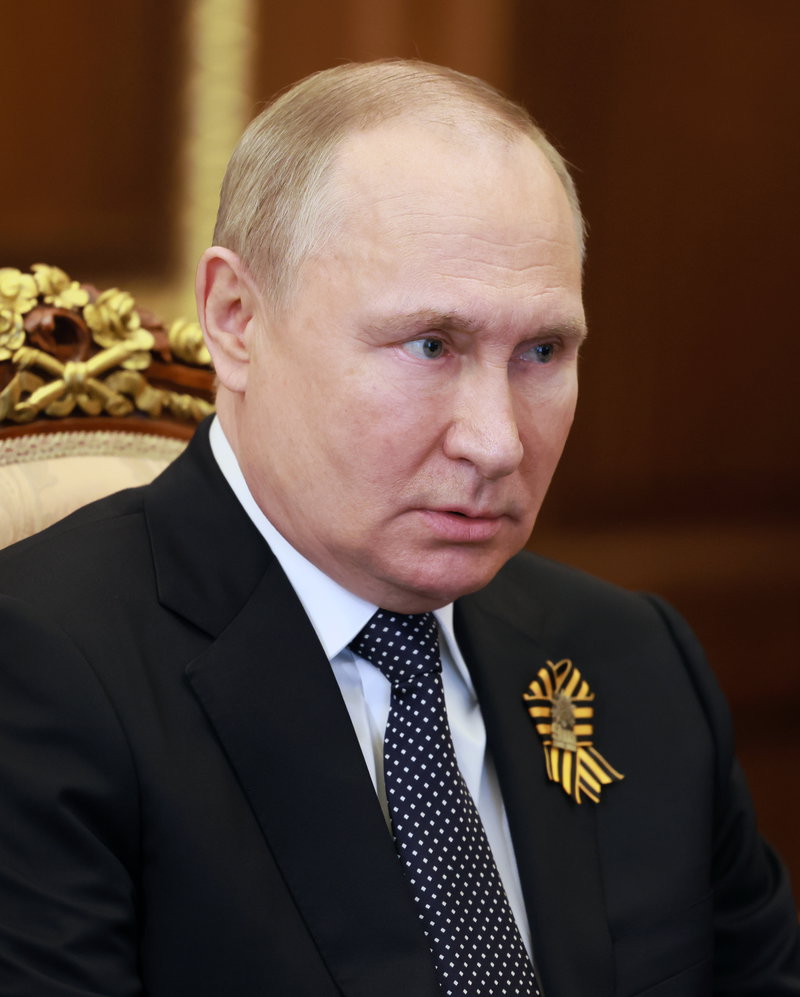RUSSIA’S AFFECTION FOR THE N-WORD
Russia’s annexation of Crimea and the long-lasting war in the Donbas had been deemed part of a faraway localised low-intensity conflict by the West. Then, on February 24, the Kremlin launched an all-out invasion (deploying 120 battalion tactical groups [BTG], or 65% of all Russia’s forces), aiming to take Kyiv in the blink of an eye. Hours earlier, Putin had given a speech with little room for speculation, infusing doses of hatred and scorn unseen (in Europe) since Hitler’s gloomily famous incendiary speeches. Words mirrored by mass-murder resulting from indiscriminate shelling and soldiers’ atrocities on civilians.
His opening casus belli (it later shifted with his army’s failures) for his “special military operation” was to “de-Nazify” Ukraine, which is interesting coming from a notorious professional thug, and considering that the single far-right MP in Ukraine’s democratic Duma and President Zelensky himself are Jewish. Autocrats are never short of hyperbole or blatant lies, remaining accountable to no one other than age, illness, or internal coups.
This has notable parallels with Spanish nationalism, which is still mainstream in the country, and the tendency to use the N-word when facing Catalonia’s independentists. For example, Spain’s justice minister in 2014, Rafael Catalá, associated the independence movement with fascism and Nazism, as did Josep Borrell when he was foreign minister. Both got away with denigrating a citizens’ movement widely praised as peaceful and democratic.
These borderline, even irrational, attitudes are possibly better understood through the prisms of dwindling dominators. Whereas some empires in retreat have chosen the “force of seduction”, such as the Francophonie or the British Commonwealth, this is arguably not the case in either Madrid or Moscow, which are both still infused with a sense of superiority and dominion, despite their watered-down relevance on the world stage, particularly on the economic front.
Witness Russians traditionally snubbing Ukrainian culture, specifically. While in their company, this author is often puzzled by their contempt for their neighbour’s identity: the Ukrainian language dismissed as second class, funny, only for peasants, and of course unintelligible. In contrast, Ukrainians are fluent in Russian and appreciative of Russian culture.
This serves to illustrate the relevance of “setting the canon”, the standards. Take Taras Shevchenko, Ukraine’s national poet, who went from serfdom to genius in poetry, literature and painting during the Romantic period of the 19th century. Deported to Kazakhstan – part of Tsarist Russia’s eastern expansion – due to his strong stance on Ukrainian culture, he remains unknown outside his homeland.
Russia’s great writers are renowned worldwide: i.e. Pushkin, Dostoyevsky, Tolstoy. Beyond their talent, chiefly, they were functional to tsarist Russia – notwithstanding some suffering repression, such as Dostoyevsky, exiled after being “saved” at the last minute from a staged firing squad! Shevchenko was clearly not “useful”: spreading his words and ideas would delegitimise Russian dominion by force and submission, including of Ukrainian land since the 18th century.
It makes his more than 1,000 statues around Ukraine understandable, as they praise bard and culture alike, while underlining Russia’s oppression. The heroic, sturdy and cunning Ukrainian resistance is grounded in its sense of self, which contrasts with the enemy’s motto: “there is no Ukraine”. In fact, they are showing to the world how to resist an army that had been considered the world’s second most powerful until this war. Ukrainians have already (by mid-May) wiped out around a third of Russia’s TBG, and recovering their stolen territory is not inconceivable.

